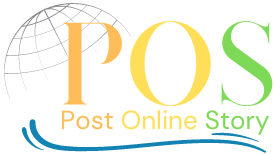Table of Contents
On-Page
On-Page and Off-Page SEO: On-Page SEO refers to the optimization techniques and practices implemented directly on individual web pages to improve their visibility and ranking in search engine results. It focuses on optimizing various on-page elements and factors to make the page more relevant, accessible, and user-friendly.
Below are several essential elements and strategies encompassed within the realm of On-Page SEO:
Thorough keyword research forms the foundation of effective On-Page SEO, enabling strategic optimization of web content. This involves identifying the keywords and phrases that your target audience is likely to use when searching for relevant content. By incorporating these keywords naturally throughout your web page’s content, including titles, headings, paragraphs, and image alt tags, you can signal to search engines that your page is relevant to those queries.
Title Tags and Meta Descriptions: Title tags and meta descriptions are HTML elements that provide concise summaries of a web page’s content. Optimizing these elements with relevant keywords and compelling descriptions can improve click-through rates from search engine users. It is important to create unique, descriptive, and concise title tags and meta descriptions for each web page on your site.
Heading Tags: Proper use of heading tags (H1, H2, H3, etc.) helps organize the structure and hierarchy of your content. Search engines use heading tags to understand the context and importance of different sections of your page. Including relevant keywords in headings not only assists with SEO but also improves the overall readability and user experience.
URL Structure: Optimizing your URL structure can contribute to better search engine rankings. URLs that are short, descriptive, and include relevant keywords can help search engines and users understand the topic of the page. Avoid using complicated or dynamic URLs that contain random strings of characters, as they can be less user-friendly and less likely to be clicked on in search results.
Content Optimization: High-quality, relevant, and engaging content is a critical aspect of On-Page SEO. Ensure that your content provides value to users and aligns with their search intent. Use relevant keywords naturally throughout the content, but avoid keyword stuffing, which can be penalized by search engines. Include descriptive headings, bullet points, and multimedia elements to enhance the readability and visual appeal of your content for On-Page and Off-Page SEO.
Internal Linking: Internal links connect different pages within your website. By incorporating internal links, you create a logical and organized structure that helps search engines crawl and understand your site better. Internal linking also helps distribute the authority and relevance across your web pages, improving the visibility and ranking potential of individual pages.
User Experience Optimization: User experience is an integral part of On-Page and Off-Page SEO. Factors such as page loading speed, mobile-friendliness, easy navigation, and a visually appealing layout contribute to a positive user experience. Optimizing these elements enhances user engagement, reduces bounce rates, and encourages visitors to spend more time on your website.
Read Also: Exploring the Significance of Digital Marketing for Small Businesses
It’s important to note that On-Page and Off-Page SEO is an ongoing process. Regularly auditing and optimizing your on-page elements, updating content, and adapting to search engine algorithm changes can help maintain and improve your search rankings over time.
In conclusion, On-Page SEO revolves around the optimization of individual web pages, aiming to enhance their visibility and ranking within search engine results pages (SERPs). By implementing techniques such as keyword research and optimization, optimizing title tags and meta descriptions, improving URL structure, creating high-quality content, incorporating internal links, and enhancing user experience, you can increase the chances of your web pages being found and ranked higher by search engines.
Off-Page SEO
On-Page and Off-Page SEO: Off-Page SEO refers to the set of optimization techniques and practices that are implemented outside of the target website to improve its visibility, reputation, and authority on the internet. Unlike On-Page SEO, which focuses on optimizing on-site elements, Off-Page SEO primarily revolves around building external signals and establishing the website’s credibility through various factors that occur off-site.
Here are some key components and strategies involved in Off-Page SEO:
Link Building: Link building is a fundamental aspect of Off-Page SEO. It involves acquiring high-quality backlinks from other authoritative websites to your own. Search engines consider backlinks as votes of confidence and use them to assess the relevance, authority, and popularity of a website. When reputable websites link to your pages, it signals to search engines that your content is valuable and worthy of ranking higher in search results. However, it’s important to focus on earning natural and quality backlinks rather than engaging in manipulative or spammy practices, as search engines can penalize websites for such activities of On-Page and Off-Page SEO.
Social Signals: Social signals refer to the engagement, interactions, and mentions your website receives on social media platforms. While the direct impact of social signals on search rankings is a topic of debate, social media can indirectly influence Off-Page SEO by amplifying your content and attracting attention from potential influencers and content creators. A strong social media presence can lead to increased brand exposure, wider content distribution, and the potential for more natural backlinks.
Online Reputation Management: Off-Page SEO also involves managing your online reputation and building trust with your target audience. Positive online reviews, ratings, and mentions can enhance your brand’s reputation and credibility. Encouraging satisfied customers to leave reviews, responding to feedback, and actively engaging with your audience on review platforms and forums can contribute to a positive off-page signal. Conversely, addressing negative reviews and resolving customer concerns promptly can help mitigate potential damage to your online reputation.
Influencer Marketing: Collaborating with influencers and industry thought leaders can be a valuable Off-Page SEO strategy. Influencers have a dedicated following and can promote your content or products to their audience, generating brand awareness, traffic, and potential backlinks. When influential individuals endorse your brand or share your content, it can significantly impact your website’s visibility and reputation.
Brand Mentions: Brand mentions occur when your website or brand is mentioned on other websites, even without a direct backlink. On-Page and Off-Page SEO search engines consider these mentions as a signal of relevance and authority. Actively monitoring and building brand mentions through partnerships, press releases, guest blogging, and content promotion can contribute to your Off-Page SEO efforts.
Guest Blogging: Guest blogging involves creating valuable content and publishing it on external websites within your industry or niche. By contributing high-quality articles or blog posts, you can showcase your expertise, reach a wider audience, and earn backlinks to your website. Guest blogging can strengthen your brand’s reputation, establish you as an authority figure, and enhance your Off-Page SEO efforts.
It’s important to note that Off-Page SEO requires a proactive and consistent approach. Building a strong Off-Page SEO strategy involves outreach, relationship building, content promotion, and continuous monitoring of your brand’s online presence.
Conclusion
Off-Page SEO focuses on activities that occur outside of your website to improve its visibility, reputation, and authority in the online landscape. By implementing techniques such as link building, social signals, online reputation management, influencer marketing, brand mentions, and guest blogging, you can strengthen your website’s off-page signals, attract more traffic, and improve search engine rankings.




